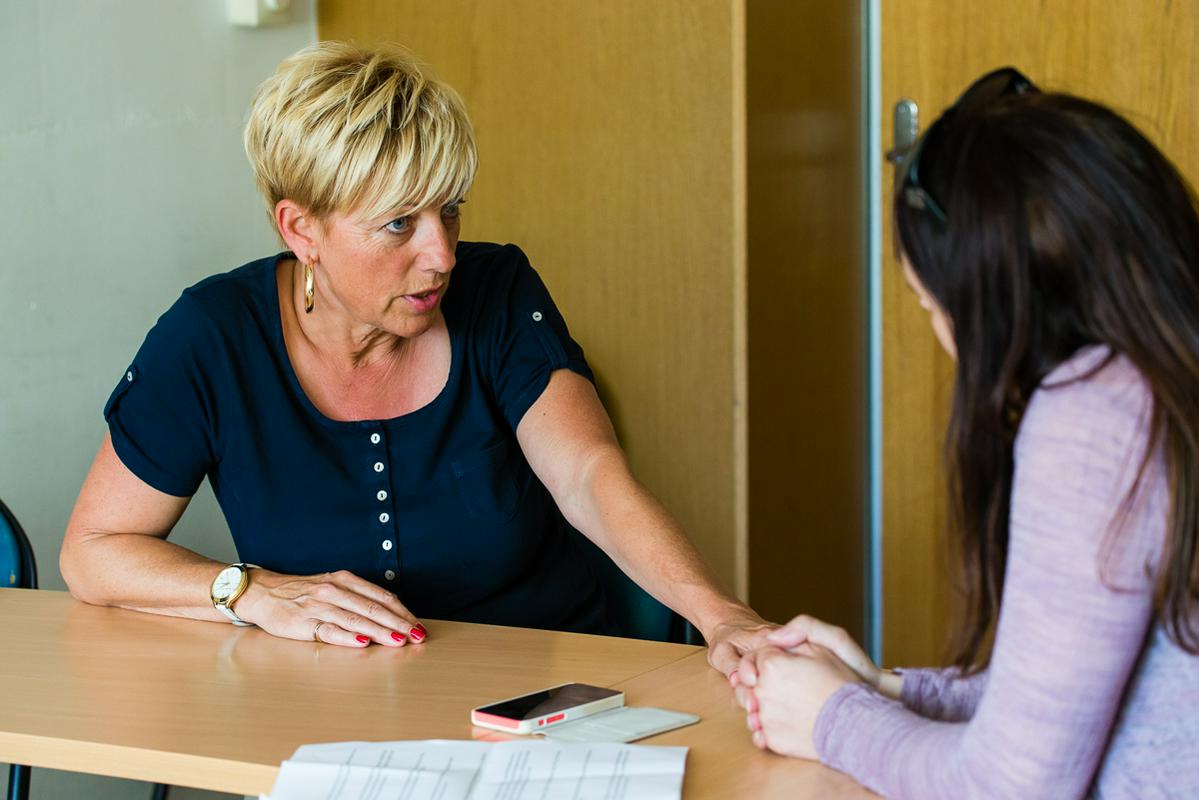
She’s a renowned face of the Slovenian public television network, working as a journalist, TV presenter and author of documentaries since the end of 1980s. She’s been the only female TV presenter of the cult news show Odmevi for the past few years. She also has a PhD in history, writing books as well as giving lectures as part of her academic career.
I talked to the Maribor-born presenter – who believes that the Odmevi news show is too “emonocentric” (t/n: Ljubljana-centric) – in her office, which she shares with the other TV presenters of Odmevi and where the most honourable place is given to a showcase filled with numerous viktor awards won by the creators of Odmevi in the past years.
The Odmevi news show got another award this year, a viktor, and has had the reputation of being the best news show on Slovenian television for a long time now, becoming a cult show. What is so special about this show that it hasn’t lost its leading position?
I think our greatest advantages are tradition, a permanent team of presenters and a set slot: every workday at the same hour. Probably also a good dose of energy from the team with which we try to make Odmevi the last event of the evening at 10 pm.
You get a lot of letters and electronic responses. What do viewers of Odmevi write to you?
When we won the viktor, we got a lot of congratulations. When the property tax came out, I personally didn’t have the time to read all of the letters; there were some very sad ones, about what happened to the people, which they perceived as injustice. I often think about how ungrateful we are in this house about the letters we receive. These are the destinies of the people, and they could serves for us to make our news programme a bit closer to life. We should simply have a group of journalists that we would send these letters to, and they could check the stories, highlight them, find other opinions and then make independent news pieces, pointing out the anomalies in the country. I understand most of these letters as a compliment, since they show that our viewers believe we can help them solve their problems. Even though we can ensure very little of this; it seems we can be a tiny piece of a confessional for many people.
As part of your academic activities, you write books and give lectures across Slovenia. What imprint has the research and writing a book on Jože Pučnik left on you? Has this given you a zest for writing another book or do you need a long break?
The latter. I need a long break, since becoming familiar with the work and life of Jože Pučnik, PhD, will affect me for a long time to come. It’s one thing to learn about a communist regime from books written, say, in the 1950s and 1960s, but when you’re reading about the fate of an individual, a prisoner, his notes on interrogations, records of visits, when you’re listening to the confessions of his then wife … coming that close to a person … leaves you incapable of writing a book, publishing it and then closing the chapter, pretending this “convergence” hasn’t left a trace on you. It has, a deep one.
I’m asking you about this since it appears that there exist different understandings of the concept of patriotism, and that people express their patriotic feelings in various ways. It is possible that the love for homeland divides us so much? At least it seems that way.
If you asked the people if Slovenia as their homeland, the place they were born, where their roots lie, is a value to them, you’d probably get very unambiguous answers. If you ask them about the country, the life in it and the way it’s run, the answers differ very much, of course. I’ve discovered the strongest patriotic feeling in the people who don’t live in Slovenia. Their nostalgia and yearning abroad are so strong that it’s difficult for us, who live in Slovenia, to understand this.

































































